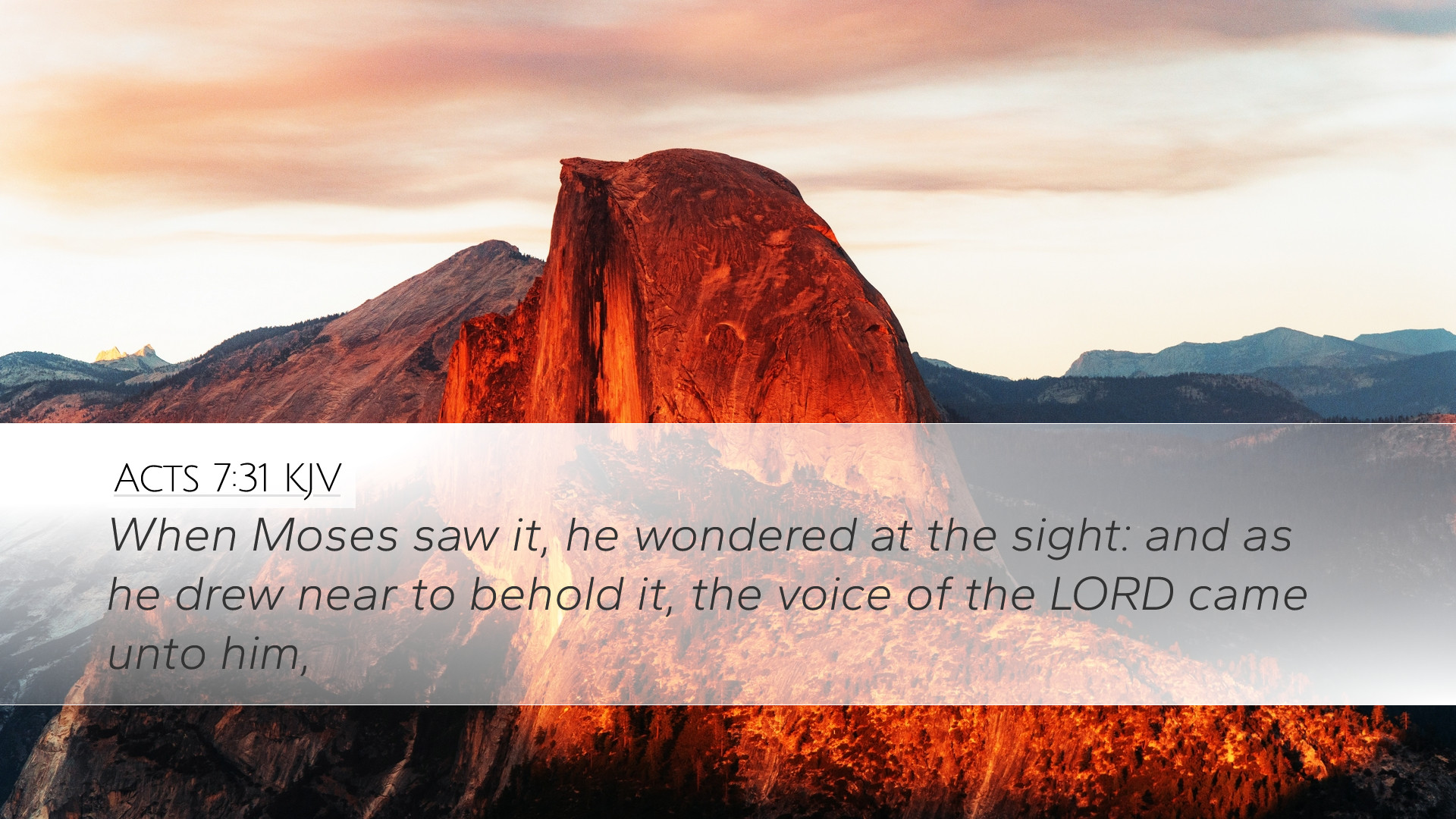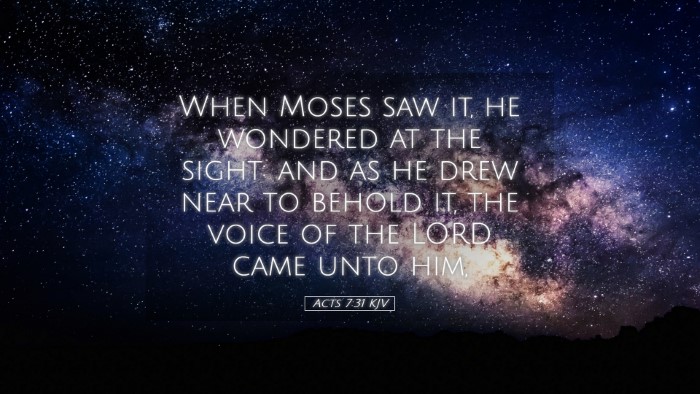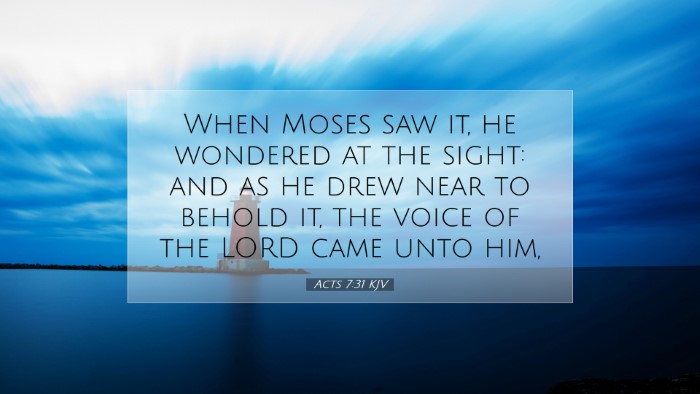Commentary on Acts 7:31
Verse Reference: Acts 7:31 - "When Moses saw it, he wondered at the sight: and as he drew near to behold it, the voice of the Lord came unto him."
Introduction
This verse encapsulates a pivotal moment in Moses' life, serving as a divine encounter that sets the trajectory for the liberation of Israel from Egyptian bondage. Herein, we explore insights from prominent commentators to illuminate the theological and historical significance of this verse.
Exegesis of the Verse
In this passage, the awe-inspiring event of the burning bush unfolds, showcasing God’s method of calling Moses. The profound wonder Moses experiences and the subsequent divine declaration reflect a fundamental encounter between humanity and the Divine.
Observation of the Miracle
Matthew Henry emphasizes that Moses' attention was captured by a remarkable sight—a bush that burned but was not consumed. This phenomena symbolizes God’s presence and serves as a profound message about His constancy and eternal nature. The miraculous captures the essence of God working within natural phenomena, showcasing His sovereignty and power.
The Role of Curiosity in Spiritual Engagement
Henry further notes that Moses' initial curiosity was crucial for his next steps; it illustrates how divine encounters often start with a draw towards the divine. The phrase "he wondered at the sight" indicates a reflective engagement that is necessary for spiritual comprehension. As modern-day believers, this invites reflection on how we engage with the divine today—do we stop to wonder and seek understanding?
The Voice of the Lord
Albert Barnes flows into the theme of divine communication. He notes that the voice of the Lord signifies a personal and distinct revelation of God. This act of drawing near, prompted by wonder, allows Moses to be receptive to God's calling, symbolizing how humans are invited to enter into communion with God through heartfelt inquiry.
The Importance of Proximity to Divine Revelation
The call to draw near as Moses did is pivotal for believers today. Engaging closely with God requires an openness to His voice. Barnes underscores that God desires to meet us in our wonder and curiosity about His ways, signaling to the faithful that relationship is shaped through such encounters.
Moses: A Paragon of Leadership
Adam Clarke discusses Moses’ character development during this moment. He points out that the burning bush is not merely a spectacle but also represents the refining fire through which God equips His leaders. The trials Moses would face in Egypt require a leader attuned to God's voice—he must learn to recognize and obey divine directives.
Theological Implications of Divine Leadership
Clarke adds that Moses' capacity to lead is deeply rooted in his ability to hear God’s voice amid the chaos of his circumstances. He posits that the divine call often invites one into leadership roles grounded in humility and dependence on God rather than self-reliance. This sequence instructs future leaders in the Church on the foundation of spiritual authority and guidance.
Application for Today
The overarching narrative of Acts 7:31 draws attention to the nature of God as both transcendent and immanent. As believers engage with this text, several applications arise:
- Seeking God: Like Moses, we must cultivate a spirit of inquiry and wonder, recognizing that God often reveals Himself in the ordinary.
- Listening for the Voice of God: Our spiritual journey requires that we practice active listening for God's guidance in our lives.
- Embracing Leadership Challenges: God often equips His leaders through significant encounters, and readiness to respond to His call is essential.
Concluding Thoughts
Acts 7:31 not only details a miraculous event but serves as a profound invitation for deeper engagement with the divine. Through the insights of Henry, Barnes, and Clarke, we see how this biblical narrative continues to resonate, calling pastors, students, theologians, and scholars to reflect on their relationship with God, the nature of divine calling, and the transformational power of genuinely encountering the Lord.


